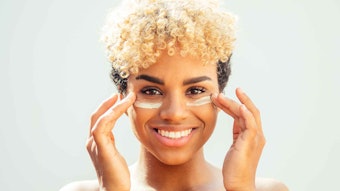All-trans-retinoic acid (RA) and all-trans-retinol (ROL) are not widely used as anti-wrinkle agents due to their irritancy and photostability, respectively—which have thus become important issues in the development of RA or ROL derivatives. The aim of the described study, published recently in Skin Research and Technology, was therefore to identify the efficacy of retinyl retinoate, a novel hybrid vitamin derivative, as a potential anti-aging agent for cosmetic products.
A prospective, double-blind, randomized and controlled clinical study was conducted on 11 Korean women in which every four weeks, a global photodamage score, photographs and image analysis using replicas and visiometers were taken. The dermal distance and intensity were also evaluated.
Results revealed a statistically significant improvement in facial wrinkles (p < 0.05) in all eleven volunteers and the successive application of 0.06% retinyl retinoate cream for 3 months showed decreased depth and area of wrinkles, in comparison with 0.075% retinol cream. Further, the visual wrinkle improvement and maximum roughness improvement rate (R2) for retinyl retinoate cream were 22% higher than that of retinol cream after 12 weeks. Finally, a statistically significant increase was observed after eight and four weeks for dermal distance and dermal intensity, respectively (p < 0.05).
The researchers therefore concluded that retinyl retinoate has the characteristic features of a new anti-aging agent, and effectively improves facial wrinkle conditions.










